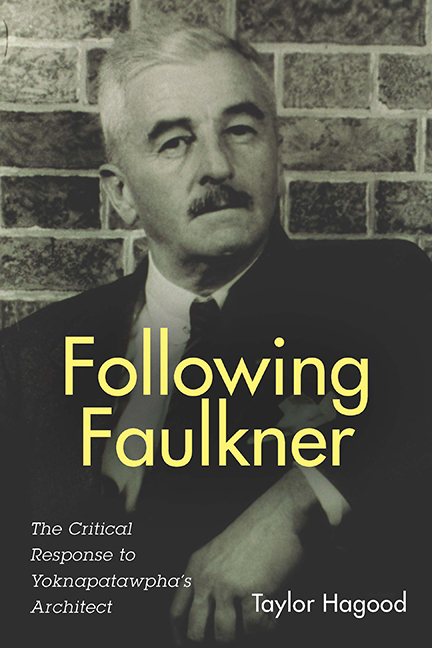1 - Genius in the Hinterland
Published online by Cambridge University Press: 27 April 2017
Summary
Faulkner apocrypha has the author as a child following in the footsteps of the ancestor for whom he was named. Colonel William Clark Falkner was an adventurer, soldier, town and railroad builder, and wouldbe congressman who was shot and killed by a political enemy on the eve of his election to the state legislature. The romantic life of this ancestor would furnish fodder for his great-grandson's imagination, but one of the things the great-grandson latched onto about the Colonel was his writing. In between killing attackers in self-defense, fighting in the Mexican and Civil Wars, and building railroads, the Colonel found time to turn his hand to creative writing. As a young veteran of the Mexican War he wrote an epic poem entitled The Siege of Monterey (1851), and later he wrote a travel book entitled Rapid Ramblings in Europe (1882), which bore some resemblance to the more successful travel books of Mark Twain. He also wrote novels, including The Little Brick Church (1882) and Lady Olivia (1895). His most important literary creation was The White Rose of Memphis (1881); its narrative is a ponderous and sentimental one with orphans and ghosts, a forgettable tear-jerker, but it made an impact on north Mississippi (including providing the names of at least one stop along the Colonel's railroad that grew into a town named Ingomar) and on the future Nobel Laureate, who reportedly proclaimed at a young age that he wanted to be a writer like his great-granddaddy. Biographers have well pointed out that Faulkner looked to emulate his great-grandfather in many ways, from his attempts to fight in World War I to his later buying a farm in an effort to re-establish himself as landed gentry, and his writing was no exception.
By his teenage years, however, William Cuthbert Faulkner's knowledge of literature had grown far beyond just his great-grandfather's writing. Faulkner's mother had guided his reading in the classics throughout his youth, grounding him in great literature. By his teenage years he lost interest in formal schooling, dropping out in order to spend his time wandering the north Mississippi hills and reading and writing (mostly poetry) under the tutelage of his slightly older friend, Phil Stone, who knew of the avant-garde writers and who furnished Faulkner with the books and journals that held their work.
- Type
- Chapter
- Information
- Following FaulknerThe Critical Response to Yoknapatawpha's Architect, pp. 6 - 24Publisher: Boydell & BrewerPrint publication year: 2017

